So last week in Part 1, we got stuck into the organic food debate by discussing the different terms used in the industry, what they mean and then looking in detail at the significant nutritional differences between commercial and organic food. This week we’re going to cover toxins, the environment, taste, cost and finish with our top tips. So, without further ado let’s crack on.
|
Levitise's S.A.P. Model As per last week, we’re going to apply Levitise’s S.A.P. model to this article whereby we’ll look at everything from a Scientific, Ancestral and Personalisation approach. We may even adopt the even more robust S.A.P.C. approach where we overlay a healthy dollop of Common sense on top of the whole shebang but, let’s not get ahead of ourselves just yet! |
||
Nutrients, toxins, the environment, taste and price
Continued...
Toxins on organic food vs conventional food
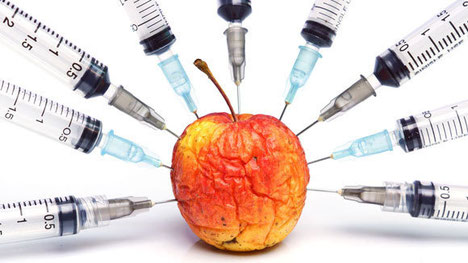
Let’s start off by looking at what the science has to say about toxins. There's no disputing that there are more RIFFPH toxins (industrial chemical fertilisers, pesticides, fungicides, rodenticides, insecticides and herbicides) on commercial food than organically farmed food. That's not under dispute. What is under dispute is how much and how much of a significant health risk they pose. Last week we discussed the huge meta-analysis1 that mashed together 343 scientific papers comparing commercial vs organic farming. Along with the nutrition revelations they also concluded that:
- The frequency of occurrence of pesticide residues was found to be four times higher in conventional crops than organic crops
- Commercial crops contained significantly higher concentrations of toxic metals such as cadmium than organic crops
Rice is probably the most consumed crop in Singapore (325,000 metric tonnes estimated to be imported in 2017) and there are many scientific studies that prove conventional rice often contains high amount of arsenic2345 which is another great argument for at least going organic with rice only.
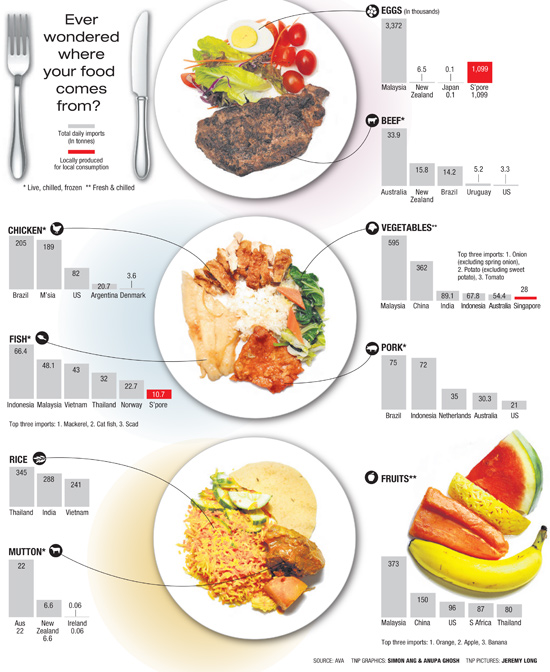
| RIFFPHs (pesticides etc.) | Summary | Malaysia | Availability Worldwide | What does Wiki say? |
| 1,3-Dichloropropene | A fungicide linked to cancer | Allowed | Banned in EU in 2007 | "In the US, the Department of Health and Human Services (DHHS) has determined that 1,3-dichloropropene may reasonably be anticipated to be a carcinogen. The International Agency for Research on Cancer (IARC) has determined that 1,3-dichloropropene is possibly carcinogenic to humans. The EPA has classified 1,3-dichloropropene as a probable human carcinogen." |
| Glyphosate | Best selling herbicide in the world by Monsanto, linked to kidney disease and cancer | Allowed | Banned in Netherlands, Brazil, Canada, Sri Lanka, EU considering banning | "In March 2015, the World Health Organization's International Agency for Research on Cancer classified glyphosate as probably carcinogenic in humans. A 2014 meta-analysis found a correlation between occupational exposure to glyphosate formulations and increased risk of B cell lymphoma." |
| Atrazine | A weed killer that messes with hormones, affects the immune system and is linked to birth defects | Allowed | Banned in EU in 2004 | "In 2007, the EPA said, "studies thus far suggest that atrazine is an endocrine disruptor". In people, risks for preterm delivery and intrauterine growth retardation have been associated with exposure" |
| Neonicotinoids | Responsible for the mass disappearance of entire bee colonies and harmful to many animals | Allowed | Banned in EU in 2013 | "In a series of papers it concludes that these systemic insecticides pose a serious risk of harm to a broad range of non-target invertebrate taxa" |
Table 1: Examples of RIFFPHs banned in Europe but not in Malaysia or the US
Now we’re not specifically beating up Malaysia here6. The US is even worse and Australia is not much better. Malaysia did at least ban Paraquat which has been demonstrated to be acutely toxic to humans and is still liberally used in the US. What we’re highlighting here is why do some countries ban these RIFFPHs whereas others allow them? What does the European Union know that Malaysia does not? I suspect the only reason is that the EU political machinery puts a higher priority on health than other countries in the world where other countries may prioritise industry, capitalism, GDP growth and other issues more. Also, some studies will show links to various diseases like cancers and some will find no correlation whatsoever. What you have to ask yourself is “Is there smoke without fire?” and “Do you want to take a gamble?”.
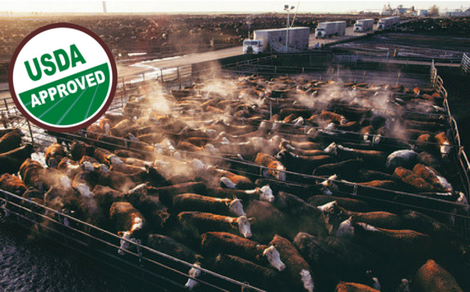
Aside from grains, fruits and vegetables we also need to consider the toxicity of the animals that we consume. In many countries in the world, such as America, they feed their animals regular doses of antibiotics that destroy the animal’s intestinal microbiome and make them fat. This increases their value at slaughter because animals are sold by weight. Remember antibiotics are useful in a life or death situation but taken too frequently they destroy your gut bacteria, weaken your immune system and set you up for more diseases and problems in the future. This is why this practice is now banned in Europe. Along with antibiotics animals, especially chickens, are pumped full of growth hormones, which makes them grow quicker and larger but is going to rob them, and you, of your life at the other end. Do you want to consume second hand growth hormones? Animals are also fed the worst quality food that is usually considered unfit for human consumption. Any toxins or chemicals in the food that the animal can’t deal with will be stored away and bioaccumulated in its fat cells to be consumed by you at a later date. Thus, by eating commercially farmed animals you are exposing yourself to higher concentrations of toxins than if you were eating only commercially farmed vegetables.
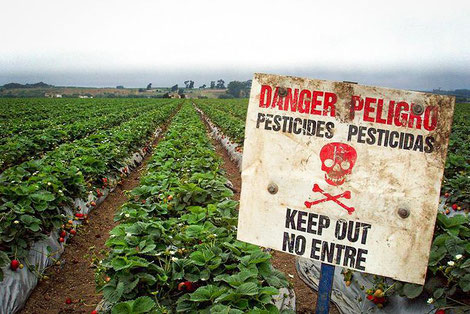
OK, so lets take a look at this from an Ancestral perspective. The powers that be tell us that in small amounts these pesticides won't kill us. And you know what? If we take one toxin in isolation then they're probably right. A small amount of pesticide residue on your carrots eaten every now and then is probably fine but its not just that is it? There's pesticides on your carrots, fungicides on your berries, rodenticides on your grains and chemical fertilisers on everything. On top of that you've got mercury fillings in your mouth, inhaled pollution from cars and industry, arsenic in ground water, chromium from food dyes, aluminium from vaccines, BPAs from plastics and the list goes on. All of these toxins are accumulated in your body and result in a significant toxic load that must be dealt with by your liver and your kidneys and if they are not up to the job, which is the case for 99.99% of people in the modern world, then these toxins will be stored in your fat cells OR will end up just polluting your body making you sick and fat. How do we know this? Well we have record numbers of obesity in the world, record numbers of cardiovascular disease, cancers, liver failure, chronic kidney disease, Alzheimer’s, Parkinson’s, Autism and a whole host of lifestyle diseases that are the result of us living in disharmony with nature. These are all modern diseases that were relatively unheard of 100s of years ago.
From a personalisation perspective again we would ask you the same thing we did last week. Go 100% organic for a week and see how you feel. Think of it as an adventure. Clear out your cupboards, make a list of 7 days worth of ingredients and spend a day at the weekend “hunting and gathering” for great tasting organic produce from NTUC, Cold Storage, Ryan’s Grocer, The Organic Grocer and others on our Singapore healthy food shopping guide. If it all sounds like hassle or too much work then I’d love to draw your attention to a quote from one of the best movies of all time, The Shawshank Redemption:

“I guess it comes down to a simple choice, really. Get busy living or get busy dying.” - Andy Dufresne
And lastly, on the topic of toxins we add on the "C", common sense, from our S.A.P.C. methodology and I would like to ask you this question. If pesticides are OK on our food crops then why does this guy basically have to dress up in a HazMat suit to spray his crops!?
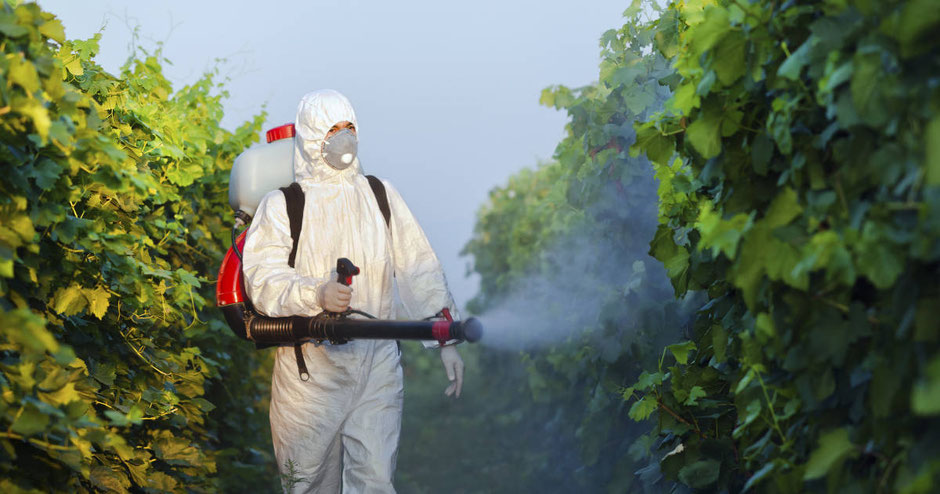
The environmental impact of organic farming vs conventional farming
For this section let’s get stuck straight into the facts around the environmental impact of conventional farming and agriculture practices vs organic farming:
- Organic farming produces 50% lower carbon emissions than conventional farming because organic farmers do not use inorganic nitrogen fertilisers
- Organic farms emit less nitrous dioxide and methane emissions per hectare than conventional farms due to lower livestock densities (non CAFO) and greater use of solid manure.
- The use of chemical fertilisers has resulted in a significant destruction of the soils in commercial farms
- Pesticide sprays directly contribute to air contamination in the form of ammonia volatilisation
- Organic farming produces less waste as the system has less reliance on external inputs, is less intensive, avoids agrochemicals and doesn’t use veterinary medicines
- The Environmental Protection Agency (EPA) in the US has identified over 700 chemical pollutants found in water supplies
- In a study conducted in the UK in 1998 1 in 5 groundwater water sites exceeded safe drinking water standards for pesticide contamination
- 20% of the nitrogen used in chemical fertilisers is lost and ends up in the water table
- Nitrogen leaching rates are 40 to 57% lower per hectare in organic farmlands
- A Danish study found 5 times more wild plants and 50% more species on organic farmland as opposed to conventional farms
- The number of invertebrates, butterflies and birds on organic farms are 60%, 100% and 40% greater than on conventional farms
All of these facts, and more, can be scientifically verified and explored further in Paul Chek’s excellent ebook, Under the Veil of Deception.
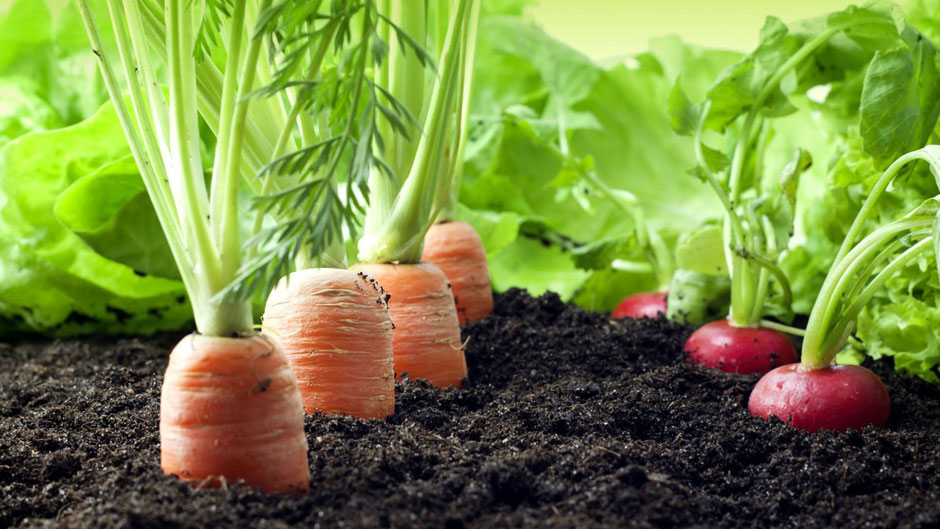
Does organic food taste better?
There’s no denying that the taste of commercial food in Singapore has gone downhill along with the quality. Take bak choi at the hawker centres for example. 20 years ago you could order it without soy sauce and it would taste OK. Now with advances in chemical fertiliSer technologies leading to even more mass production you have to drown it in something brown and salty otherwise it has zero flavour. Giant tomatoes from China can be found in Fair Price for as little as 19 cents. They are orange, not red, and again have absolutely no flavour. Tomatoes are supposed to be red, sweet, succulent, juicy and have that deliciously moreish umami quality to them. In my opinion you can always judge how good a chef is by the quality of tomatoes he has selected for his restaurant but that’s another story. Organic broccoli is sweet. Just a few minutes in the steamer, a knob of grass fed butter on it and it will be deliciously sweet. Commercial broccoli again has virtually no taste and requires lots of salt, sauces, mixed in soups etc. in order to be enjoyable. I remember going to a kids party at one of those indoor kids clubs where they served the usual garbage plus some unseasoned steamed broccoli on the side. The kids of course avoided the broccoli like the plague. Not because kids don’t like broccoli but because kids are smart enough to avoid eating something that has zero nutritional value and tastes like the cardboard tube from a toilet roll.
Don’t believe me? Ok try a simple experiment for yourself. Go to your local Fair Price and buy some organic and non-organic tomatoes, organic and non-organic broccoli and some other vegetables of your choice. Take them home and eat them on their own, raw, or lightly cooked in a steamer. Use no salt, msg, oils, sweeteners or flavourings of any kind, compare them and then let us know how you get on.
The price of organic food in Singapore vs conventional food
To do a comparison of organic food is quite tricky for a number of reasons. The first is that most organic companies do not produce the exact equivalent using conventional farming methods and vice versa. The second is that in Singapore we may import organic apples from one country but commercial apples from a different country where labour and production costs may vary significantly. Third is that organic produce tends to use better quality ingredients to start with, for example grass fed cows vs grain fed cows which increases the price of the grass fed cow even before the organic label has been “stamped" on it. And the forth reason is where you buy it from, Sheng Siong’s overheads per sq/m in the heartlands is far cheaper than SuperNature on Orchard for example. Anyhow we had a pretty good stab at it and what we came up with is a typical shopping list of fruits, veggies, starchy carbs and meats and compared prices. We didn’t include fish because in Singapore wild caught fish like parrot fish, batang, snapper and sea bass can all be bought at the local fish markets and are by default pretty much the best you can get anyhow - no extra expense required!
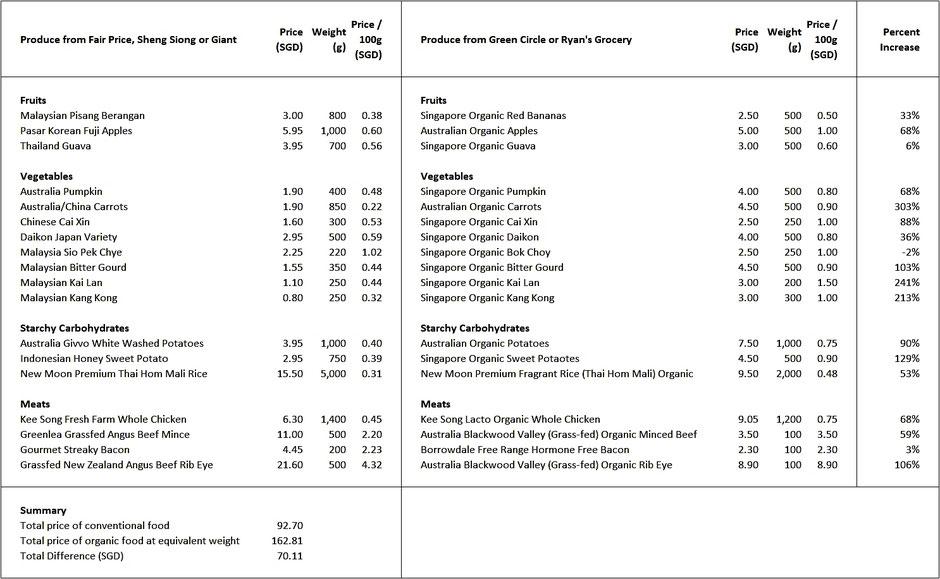
What we found was that in Singapore organic fruits are between 6% (guava) and 68% (bananas) more expensive. Vegetables can be anywhere from the same price (bok choy/pek chye) to a whopping 241% more expensive (kai lan). Carbs are between 53% (rice) and 129% (sweet potatoes) more expensive. And finally in the meat section bacon seems to be one of the best value at roughly the same price and rib eye the most expensive at just over double the cost (106%). Please click the picture above for the full analysis.
When we add up everything in our shopping list in the conventional basket the price came to S$92.70. For our organic basket we changed the weights so they were the same as the conventional basket and altered the price proportionally which came to S$162.81. That’s a S$70.11 difference or about 75% more expensive.
Now considering everything you’ve read in these two blog posts what you have to ask yourself is whether you think its worth spending 75% on your family’s food bill for organic produce that have been scientifically shown to contain:
- 69% more good omega 3 fats
- 50% more antioxidants
- significantly more vitamin C, iron, magnesium, phosphorus and other essential minerals and vitamins
- have four times less pesticide residues on them
- significantly lower concentrations of toxic metals
- no carcinogenic RIFFPHs that have been banned in many countries
- no antibiotics, hormones or other drugs
- do not contribute to the destruction of the environment
- and taste much better (ok this last one is not exactly science!)
And if that hasn’t convinced you then the last question that you may want to ask yourself should look something like this…
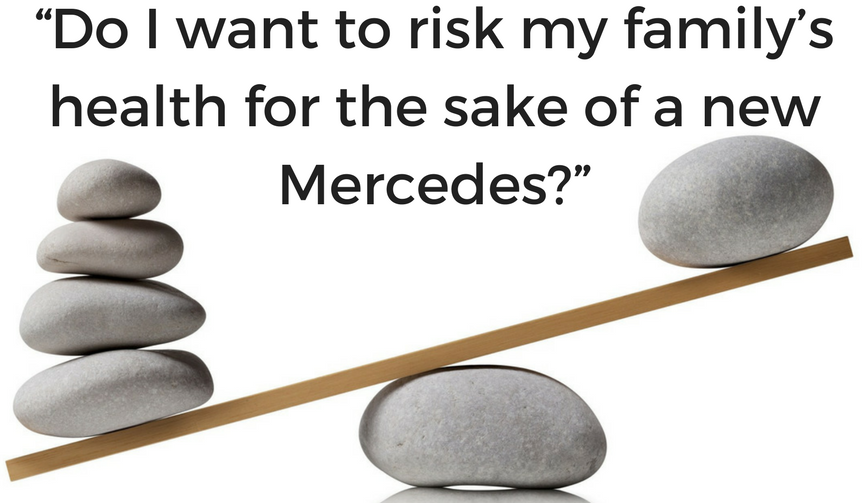
For more information on where to get good quality organic food in Singapore feel free to check out our Singapore healthy shopping food guide.
Levitise’s top tips for eating organic on a budget
Here we give you three easy to follow tips for eating organic on a budget in Singapore.
Focus on organic meats and wild caught fish as a priority
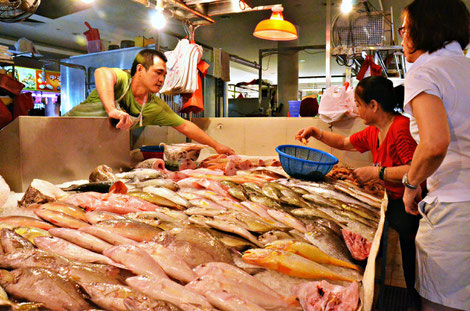
Meat - switch to organic, especially if you prefer the fattier cuts of meat as the toxins from the antibiotics, growth hormones and RIFFPHs (industrial chemical fertilisers, pesticides, fungicides, rodenticides, insecticides or herbicides) sprayed on the animals feed are accumulated and stored in the animal’s fat cells. This should be essential for everyone. If you can’t afford the expensive cuts of meat (rib eye, tenderloin, stip loin) then go for the cheaper cutslike oxtails and brisket which are generally healthier anyhow. If you can only afford commercial meat then go for leaner cuts and supplement with ghee/butter/olive oil when you eat those leans cuts. The fats are essential to help your body assimilate the B vitamins stored in the protein.
Fish - go for wild fish from the sea including sardines, mackerel, batang (local Singapore mackerel), sea bass, parrot fish and snapper.
Use everything
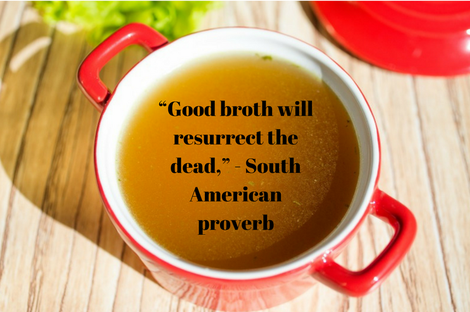
If you buy a whole chicken, a rack of ribs or a whole fish don’t throw out the bones once you’ve eaten the flesh. Save them up in the freezer until you have about 1.5kg of bones of a particular type and then simmer them slowly for a day or two until you have a beautiful bone broth. Bone broths are an amazing nutritional powerhouse chock full of vitamins, minerals and glycerine that are really easy to digest. Perfect for kids, pregnant women, if you’re sick and just for every day drinking if you have plenty to spare. You can read a lot more about bone broth at the Weston A. Price Foundation website and this article is a good place to start Broth is Beautiful.
Avoid dirty dozen
The dirty dozen is the Environmental Working Group’s list of the 12 foods covered in the most RIFFPHs including strawberries, spinach, nectarines, apples, peaches, pears, cherries, grapes, celery, tomatoes, sweet bell peppers, potatoes and chillies. If you eat these foods regularly then it’s best to switch to organic or at least cut down on them.
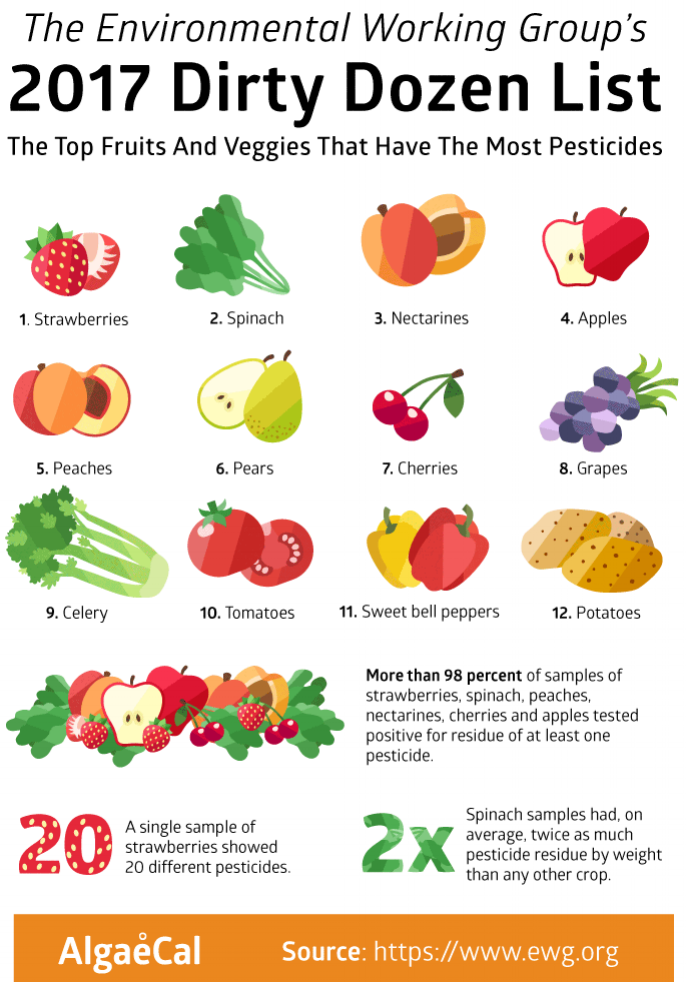
Your 10 most commonly eaten foods
For your 10 most commonly consumed foods we suggest switching those to organic. For example, if you eat rice 3 times a day you can make a huge change to your diet, without hurting your wallet, by switching to an organic brand. New Moon Premium Fragrant Rice is 8.50 SGD for 2kg from Giant or 8.95 from Fair Price. That’s only a few dollars more for something that’s going to be tastier, healthier, contain less toxins and is better for the environment.
Pick cheaper organic versions
As you can see from our table above some organic fruits and veggies in Singapore are pretty expensive like carrots, kai lan and kang kong. However other organic fruits and veggies are not so much more expensive such as bananas, daikon and bok choy/pek chye. Focus on the better value organic fruits and vegetables which are normally the ones that can be grown locally in Singapore, Malaysia and Thailand and don't have to be imported from Australia, Europe or the US. Think of it as a good opportunity to start trying different vegetables and getting a new variety of nutrients into your body which is always a good thing.
So that’s it! We did want to go into this article in even more detail but it was already turning into a total beast so in the future we’ll have to cover GMO foods, systemic pesticides, soil quality, enzymes and other related topics separately. I do hope you enjoyed it and even if just 1 in 100 of you make the switch from non-organic to organic produce then we will be happy that we have done our job well.
If you don’t want to miss out on any other Levitise blog posts as soon as we send them then be sure to sign up for Levitise’s weekly Executive Health Journal . You can sign up with only a first name and an email address.
To your Health, Happiness and Longevity,
The Levitise Team
P.S. If you love this blog post then do check out our fortnightly newsletter where you'll get the freshest content on health, nutrition and fitness delivered straight to your inbox. Don't miss out and sign up here with just your name and email.
1. Higher antioxidant and lower cadmium concentrations and lower incidence of pesticide residues in organically grown crops: a systematic literature review and meta-analyses. https://www.ncbi.nlm.nih.gov/pubmed/24968103
2. Arsenic speciation in rice-based food for adults with celiac disease. https://www.ncbi.nlm.nih.gov/pubmed/24919988
3. Arsenic in rice: a cause for concern. https://www.ncbi.nlm.nih.gov/pubmed/25536328
4. High arsenic in rice is associated with elevated genotoxic effects in humans. https://www.ncbi.nlm.nih.gov/pubmed/23873074
5. Rice consumption contributes to arsenic exposure in US women. https://www.ncbi.nlm.nih.gov/pmc/articles/PMC3251121/
6. Well maybe a little! Check this article out: Banned pesticides found in Cameron Highlands water. http://www.themalaymailonline.com/malaysia/article/banned-pesticides-found-in-cameron-highlands-water

Write a comment
Lucy (Sunday, 08 March 2020)
Great articles on organic vs conventional? One thing I would love to see you address its the effectiveness of thorough cleaning of fruit and veg (with or without special veg / fruit washes). Is this a viable solution if organic is out of budget? Any other cleaning hacks, especially with staples like rice?
Alex (Saturday, 11 July 2020 00:05)
Hi Lucy - most pesticides these days are systemic, i.e. they are embedded in the central nervous system of the plant, you can't wash them off. Also many cash crops are GMO so you're eating something that has been genetically modifies to contained more plant toxins to prevent animals from eating it - they will affect you as well. If you're looking for going organic on a budget then get Jo Rushton's book: Rocket Fuel on a Budget. Rice is loaded with toxins that it soaks up from the water in the paddy fields - I highly recoomend going organic. Naturel Organic Brown Rice from Redmart is $5 per kg.
Aryall (Thursday, 15 December 2022 12:11)
Hi Alex, is New Moon Premium Fragrance Rice organic?
Alex (Thursday, 15 December 2022 20:14)
Hi Aryall - it is not. It will always say organic clearly on the front if it is.